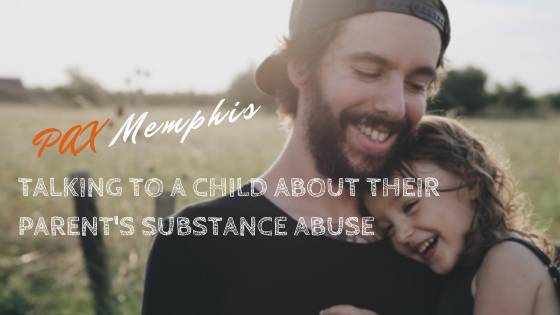As a direct result of the ongoing substance abuse epidemic, more than 28 million Americans are children of alcoholics. Children living with parents who have substance abuse issues have to face many issues that other kids never have to experience. For example, they tend to develop emotional, behavioral, and academic problems. Similarly, children of addicts are four times more likely to develop an addiction themselves. They are also at greater risk of being neglected or abused, witnessing domestic violence, and marrying an addict later in life.
Emotions are confusing, especially during adolescence. As a result, children of addicts can experience feelings of resentment and loyalty towards their parents at the same time. Sometimes, children may feel as if their parent’s addiction is their own fault. No one wants to have to talk to a child about their parent’s substance abuse. However, in order to help children of addicts heal from their trauma, it is vital for caretakers to offer them explanations, knowledge, and support.
Timing is Everything
In order for the conversation to be effective, you must carefully plan out when to talk to a child about their parent’s substance abuse. For example, you do not want to have such a severe conversation during a time where there are any distractions. Also, waiting until the emotions surrounding the situation are relatively calm is extremely important. If possible, wait to have the conversation until there are already plans in place for their parents to receive substance abuse treatment. This would allow you to explain their addiction and what steps everyone is taking so that their parent can heal. Additionally, it is okay to repeat the conversation as many times as needed so that the child feels comfortable opening up and talking about it.
Keep it Age-Appropriate
The language you use and the level of detail you provide should depend on the child’s age and maturity level. Additionally, you should make sure your message is as clear as possible while correcting any confusion and answering their questions as best as you can.
Be Honest
When talking to a child about their parent’s substance abuse, you should always be honest. Lying to them in hopes of protecting them from something may only push them farther away from you, leading them to shut down. Instead, be completely honest when answering any questions they may have. It is perfectly fine to leave out details that are not appropriate – but do your best to be as transparent as possible. Remember, they have already lived through and witnessed their parent’s addiction. Being honest and real with them will create a bond of trust and support, making helping them recover from their trauma much easier.
Knowledge is Key
Educate yourself on the causes of addiction, what battling addiction is like, and how people recover. This will help you to explain to the child what their parent is going through and allow them to see that recovery is possible for their mother or father. If the child has a question that you do not know the answer to, research it with them.
Acknowledge Their Pain
While it may be difficult to discuss, talking about the impact that a parent’s addiction has had on a child can be therapeutic. For example, you should offer your sympathy by apologizing for their parent’s behavior and how it has impacted the child’s life. Additionally, asking open-ended questions about how they have been feeling is recommended.
Reassure that it isn’t Their Fault
One of the most important things for children of addicts to understand is that addiction is not their fault. For example, kids need to know that they did not cause their parent’s addiction and they cannot cure or control it. This can be especially hard for children to understand when their parent suffers from substance use disorder. Sometimes, while their parents are intoxicated they will say things like, “if you behaved I wouldn’t have to drink”. Children need help to understand that sometimes, addicts say and do things that they don’t really mean, while under the influence. Addiction tends to take over an individual’s brain and just as the child is powerless to cure it, the parent is out of control as well.
Explain That They Aren’t Alone
Typically, children from families with addiction issues tend to idealize other families, unaware of the fact they every family struggles. In fact, many children deal with the effects of their parent’s addiction. According to the Substance Abuse and Mental Health Services, one in four children in the United States is exposed to substance abuse in the family. Additionally, it is important for them to recognize that they are, in fact, just normal kids who are dealing with an unhealthy situation. Lastly, make sure to let them know that they are doing the best they can to cope with the situation. Sometimes, simple reassurance can go a long way.
Find Additional Sources of Support
Just like the addicted parent needs treatment in order to recover, so does the child. In fact, there are plenty of resources to be utilized that would help children of addicts to begin to process and heal. If children do not want to open up to other family members, they could confide in a teacher, school counselor, or a support group such as Alateen. Additionally, one of the best tools to use is professional therapy for children. Oftentimes, the most difficult subjects are also the most important to address to children. For every day that a child lives with an addict, damage is being done. Therefore, children need honest discussion and complete support in order to heal.
Medically Reviewed: September 25, 2019

All of the information on this page has been reviewed and verified by a certified addiction professional.










